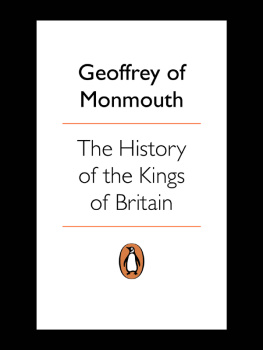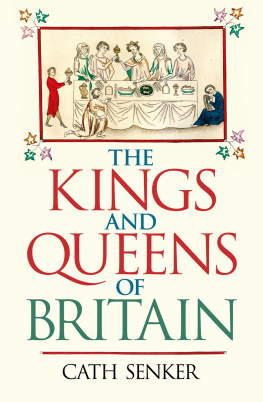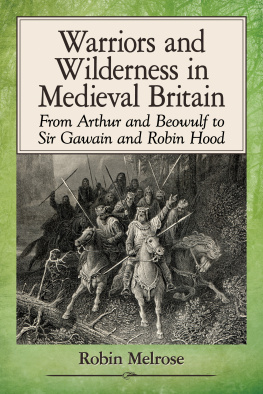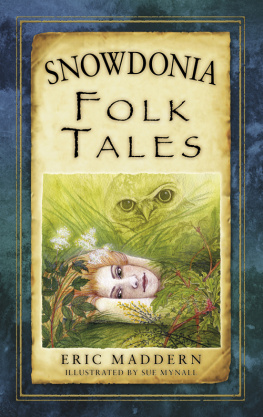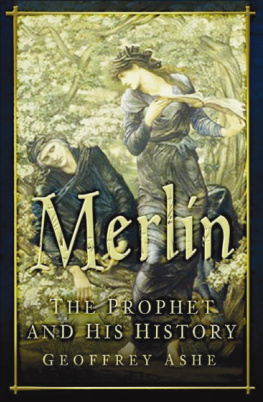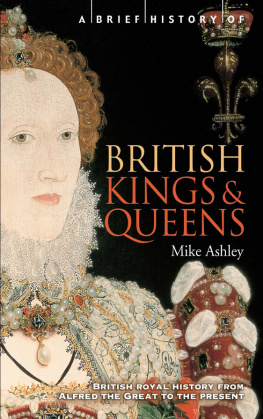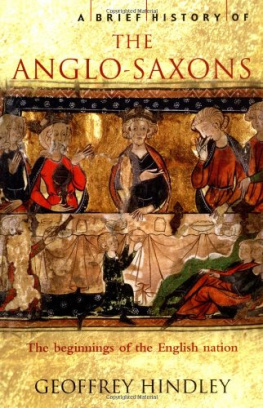PENGUIN BOOKS
UK | Canada | Ireland | Australia
New Zealand | India | South Africa
Penguin Books is part of the Penguin Random House group of companies whose addresses can be found at global.penguinrandomhouse.com.
This translation first published 1966
Translation copyright Lewis Thorpe, 1966
All rights reserved
ISBN: 978-0-241-24198-1
THE BEGINNING
Let the conversation begin
Follow the Penguin Twitter.com@penguinukbooks
Keep up-to-date with all our stories YouTube.com/penguinbooks
Pin Penguin Books to your Pinterest
Like Penguin Books on Facebook.com/penguinbooks
Listen to Penguin at SoundCloud.com/penguin-books
Find out more about the author and
discover more stories like this at Penguin.co.uk
PENGUIN CLASSICS
THE HISTORY OF THE KINGS OF BRITAIN
ADVISORY EDITOR: BETTY RADICE
A tentative outline of the life of G EOFFREY OF M ONMOUTH can be made from evidence in his text and from various other sources. He calls himself Gaufridus Monemutensis, which suggests he was horn and brought up in Monmouthshire, most likely not far from Caerleon-on-Usk, which he often mentions and which is only some twenty miles from Monmouth. From 1129 to 1151 he seems to have lived in Oxford and was probably a canon of the secular college of St Georges. During this time he wrote his History of the Kings of Britain, the Prophecies of Merlin, originally conceived as a separate volume, and the Life of Merlin. In 1151 Geoffrey became Bishop Elect of St Asaph, North Wales. He was ordained priest at Westminster in February 1152 and consecrated a week later at Lambeth by Archbishop Theobald. According to the Welsh chronicles he died in 1155.
Lewis Thorpe, BA, L-s-L, PhD, D de lU, LLD, FIAL, FRSA, FR Hist S, was Professor of French at Nottingham University from 1958 to 1977. He joined the staff of that university in 1946 after distinguished war service. He was President of the British Branch of the International Arthurian Society, and editor of the Societys Bulletin Bibliographique. He was also editor of Nottingham Mediaeval Studies and Nottingham French Studies. He published many articles, and his books include La France Guerrire (1945), Le roman de Laurin, fils de Marques le Snchal (1950), Le roman de Laurin, text of MS. B.N.f.fr. 22548 (1960), Guido Farina, Painter of Verona, 18961957 (1967) with Barbara Reynolds, Einhard the Frank: The Life of Charlemagne (1970), Le roman de Silence, by Heldris de Cornulle (1972) and The Bayeux Tapestry and the Norman Invasion (1973). He also translated Gregory of Tours: The History of the Franks, Two Lives of Charlemagne, and Gerald of Wales: The Journey through Wales and The Description of Wales for the Penguin Classics. Lewis Thorpe was a member of the MCC. He died on 10 October 1977.
Dedication
[i.x] Whenever I have chanced to think about the history of the kings of Britain, on those occasions when I have been turning over a great many such matters in my mind, it has seemed a remarkable thing to me that, apart from such mention of them as Gildas and Bede had each made in a brilliant book on the subject, I have not been able to discover anything at all on the kings who lived here before the Incarnation of Christ, or indeed about Arthur and all the others who followed on after the Incarnation. Yet the deeds of these men were such that they deserve to be praised for all time. What is more, these deeds were handed joyfully down in oral tradition, just as if they had been committed to writing, by many peoples who had only their memory to rely on.
At a time when I was giving a good deal of attention to such matters, Walter, Archdeacon of Oxford, a man skilled in the art of public speaking and well-informed about the history of foreign countries, presented me with a certain very ancient book written in the British language. This book, attractively composed to form a consecutive and orderly narrative, set out all the deeds of these men, from Brutus, the first King of the Britons, down to Cadwallader, the son of Cadwallo. At Walters request I have taken the trouble to translate the book into Latin, although, indeed, I have been content with my own expressions and my own homely style and I have gathered no gaudy flowers of speech in other mens gardens. If I had adorned my page with high-flown rhetorical figures, I should have bored my readers, for they would have been forced to spend more time in discovering the meaning of my words than in following the story.
I ask you, Robert, Earl of Gloucester,that it must no longer be considered as the product of Geoffrey of Monmouths small talent. Rather, with the support of your wit and wisdom, let it be accepted as the work of one descended from Henry, the famous King of the English; of one whom learning has nurtured in the liberal arts and whom his innate talent in military affairs has put in charge of our soldiers, with the result that now, in our own lifetime, our island of Britain hails you with heartfelt affection, as if it had been granted a second Henry.
You too, Waleran, Count of Mellent, second pillar of our kingdom, give me your support, so that, with the guidance provided by the two of you, my work may appear all the more attractive when it is offered to its public. For indeed, sprung as you are from the race of the most renowned King Charles, Mother Philosophy has taken you to her bosom, and to you she has taught the subtlety of her sciences. What is more, so that you might become famous in the military affairs of our army, she has led you to the camp of kings, and there, having surpassed your fellow-warriors in bravery, you have learnt, under your fathers guidance, to be a terror to your enemies and a protection to your own folk. Faithful defender as you are of those dependent on you, accept under your patronage this book which is published for your pleasure. Accept me, too, as your writer, so that, reclining in the shade of a tree which spreads so wide, and sheltered from envious and malicious enemies, I may be able in peaceful harmony to make music on the reed-pipe of a muse who really belongs to you.
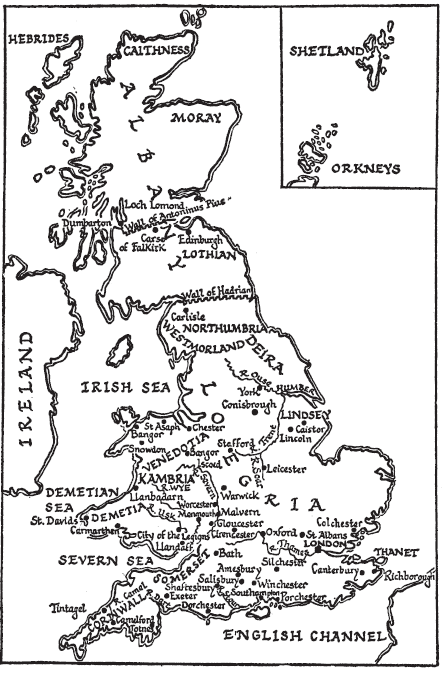
Introduction
1. GEOFFREYS PURPOSE
In some ways the History of the Kings of Britain, this strange, uneven and yet extraordinarily influential book written in Latin by Geoffrey of Monmouth and finished c. 1136, may be said to bear the same relationship to the story of the early British inhabitants of our own island as do the seventeen historical books in the Old Testament, from Genesis to Esther, to the early history of the Israelites in Palestine.

